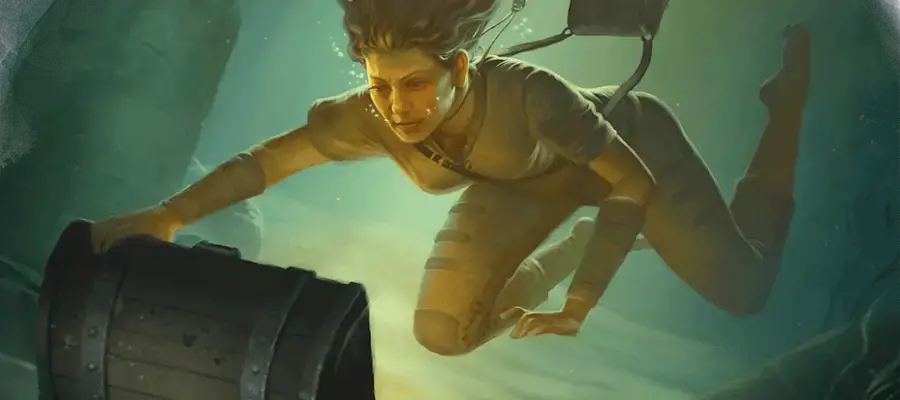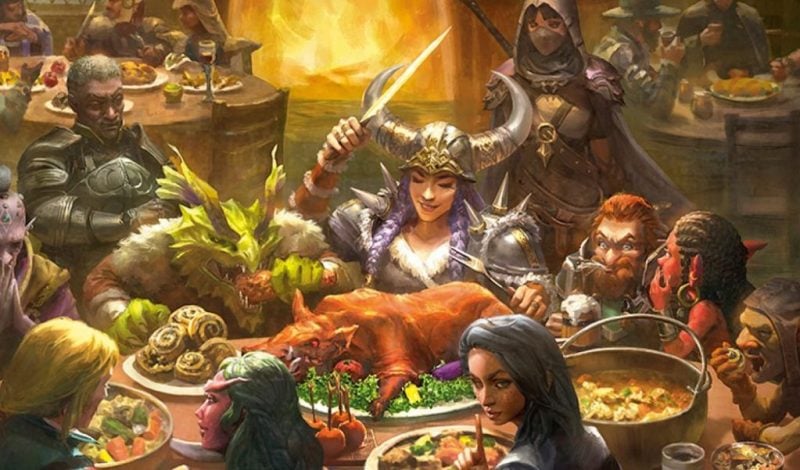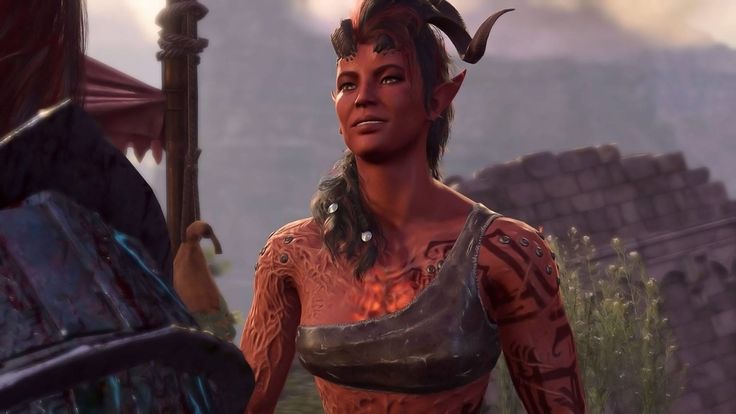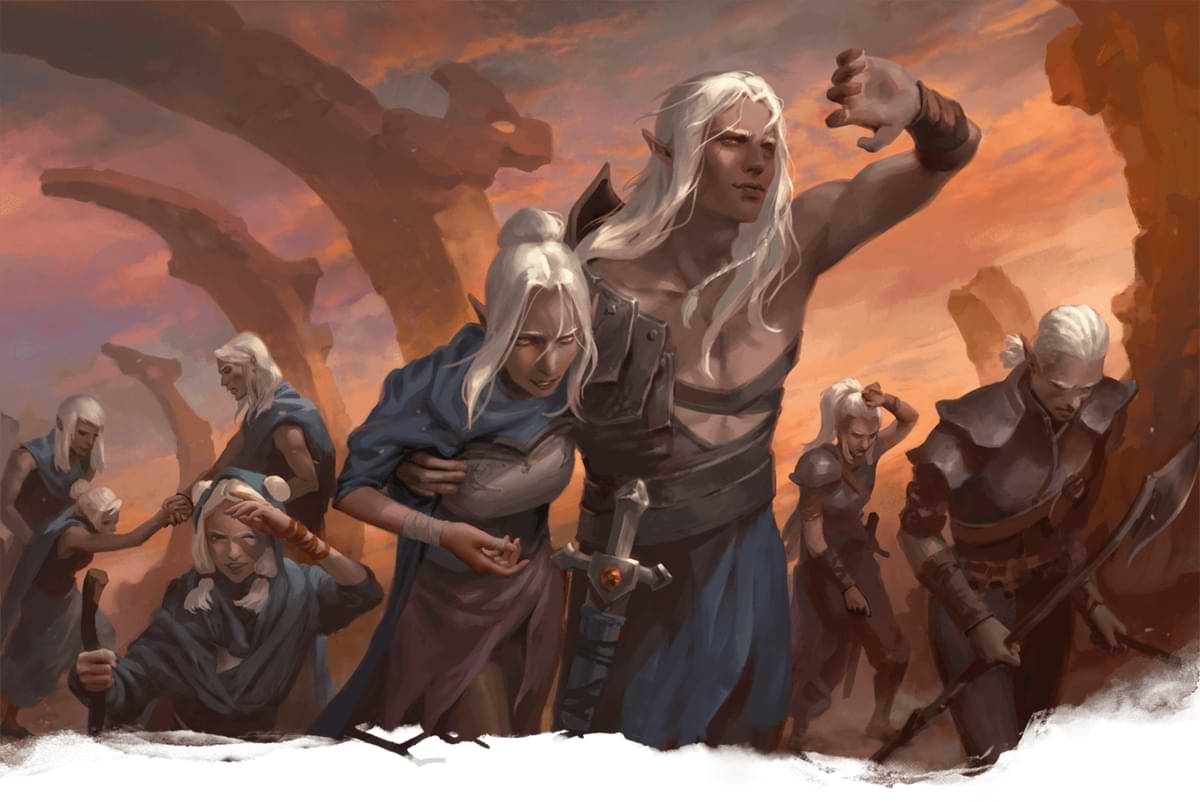D&D: Five Ways to Die Without Ever Rolling Initiative
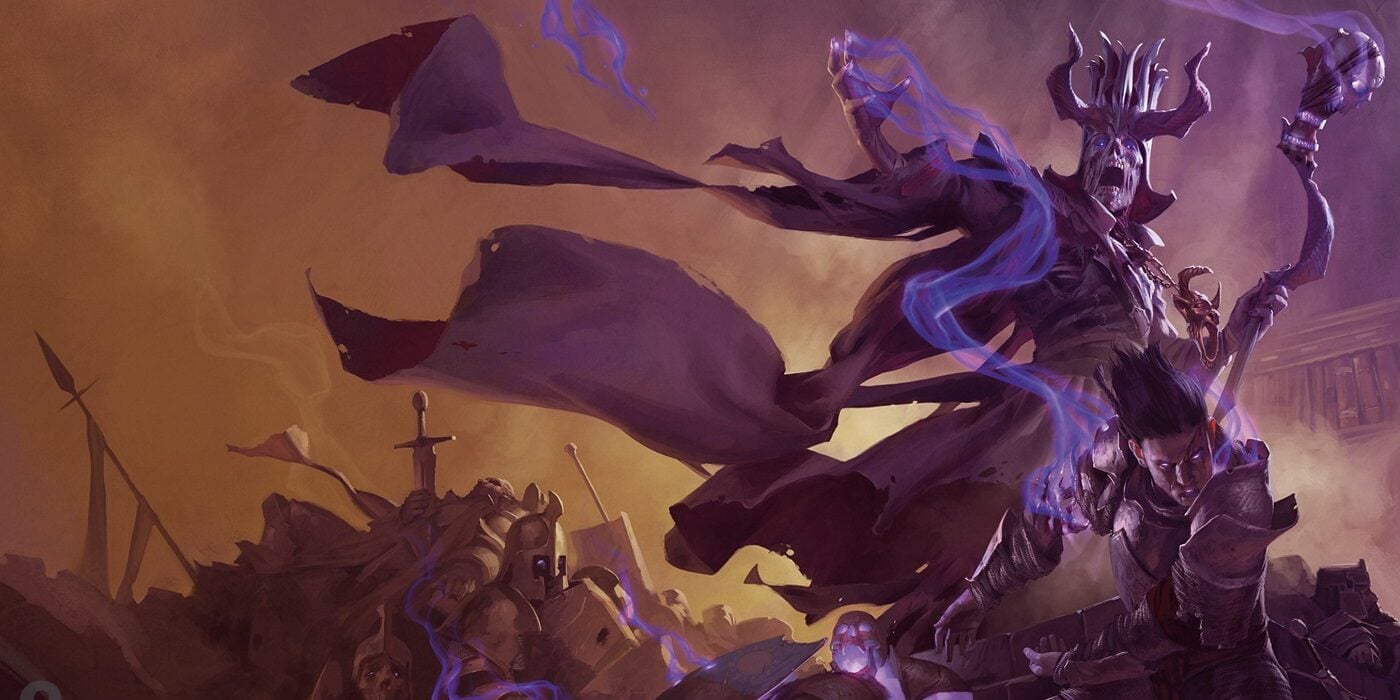
Dungeons & Dragons can be surprisingly deadly if your characters actually have occasion to use the rules for it.
Characters in Dungeons & Dragons face down a lot of deadly things: wild monsters, evil spellcasters, undead, poisons. And yet, the unprepared adventurer can, in fact, be caught dead. At least according to some of the more fiddly rules of the game.
You never even have to be in a fight for the grim reaper to have their due. Here are five ways to die in D&D without ever rolling initiative.
Drowning
Most creatures in D&D need to breathe. Unless you’re playing an Autognome, a Reborn, or a Warforged, or something unusual like that, your character needs to breathe. And if they can’t, things start to turn deadly, though perhaps not necessarily as quickly as you’d think. A typical D&D creature can hold its breath for 1 minute, plus a number of additional minutes equal to its Constitution modifier.
Which, yes, means that Barbarian with a +3 Constitution can hold their breath for 4 minutes. I don’t know why you’re raising your eyebrows knowingly like that, but once you run out of breath (or if you’re prevented from holding your breath by certain effects) it gets bad. You take one level of Exhaustion for each turn you can’t breathe. Each level of Exhaustion imparts a -2 penalty on any d20 roll, your speed is reduced by 5 feet per level of Exhaustion (making it harder to reach the surface), and if you hit six levels of Exhaustion you die outright. Exhaustion can only be removed when you can breathe again, and doesn’t impact your hit points at all. So you can’t heal your way through it.
Malnutrition
Did you know D&D has rules for needing to eat? You might be shocked to learn that it does. It’s one of the lesser-used rules, along with tracking how many arrows you have. And the specifics of the rule are just enough to make other people chime in proudly about how they actually did use these rules in one game and it was the best thing they’d ever played in.
Because it was a hard game. And they nearly died, but they didn’t. And all the other DMs out there are too soft. Etc. etc.
At any rate, the rules for hunger are as simple to use as they are to avoid: your character needs one pound of food per day. If they eat less than half of that amount has to make a DC 10 Constitution save or gain a level of Exhaustion. Any Exhaustion penalties apply to your next save. And after five days without food, you automatically gain an Exhaustion level at the end of the day, and at every subsequent day. It doesn’t go away until you eat the full amount of food you require in a given day. Hit six levels of exhaustion and you die, no ifs, ands, or buts.
Of course, all it takes is one Goodberry or Create Food & Water spell to reset you back to 0 days without food.
Thirst
The need for water, if indeed your character needs to drink, is even more dire. If your character can’t drink at least a half gallon of water per day, they automatically suffer a level of exhaustion at the end of the day. No saves in 5.5E. Just immediately apply Exhaustion which won’t go away until you get a full gallon (or however much your character needs, it depends on size, but S and M creatures need 1 gallon per day) of delicious water.
Weather
Similarly, being exposed to extreme heat and extreme cold can kill you. And pretty quick. When you are exposed to extreme cold, you make a DC 10 Constitution save at the end of each hour. If you fail, gain an Exhaustion level.
If you’re in extreme heat, it works a little differently in 5.5E. Under extreme heat, you make a DC 5 Con save at the end of each hour – but it goes up by 1 every hour after the first. And if you’re wearing medium or heavy armor, you have disadvantage on the save.
Fail a save and you’ll gain a level of exhaustion. Again, hit six of those and you die outright.
Being Too Tired
As you’ve seen, whatever the cause of Exhaustion, ultimately being too tired is what’ll kill you. That’s why everyone is always trying to get that Long Rest all the time. D&D is a fantasy, after all, and being able to regularly get a good night’s rest is a fantasy we all have in these boring dystopian days of hustling and grinding until there’s naught left of you but a corpse whose passive income streams are making the number go up, Capitalism’s favorite thing in the world.
And Exhaustion in D&D is a withering foe. It imparts a stacking penalty, starting at -2 per level and going all the way up to -10. Your speed is reduced by 5 feet per level of exhaustion that you have. And if you hit six levels, you die outright.
To make things worse, only one level of Exhaustion is removed at the end of a Long Rest. So you’ll have to keep an eye out.
And even if you don’t need to sleep your character can still suffer from Exhaustion. It’s one of the deadliest conditions, eventually, in the game.

